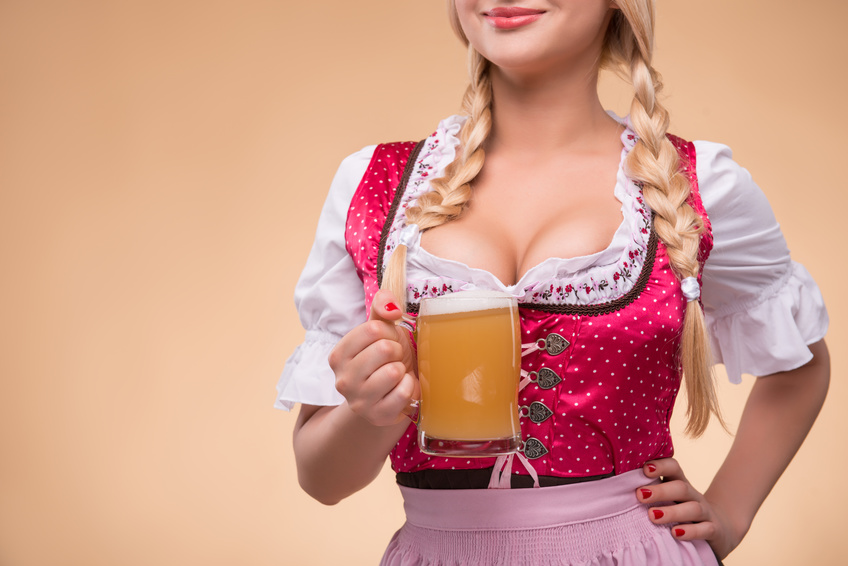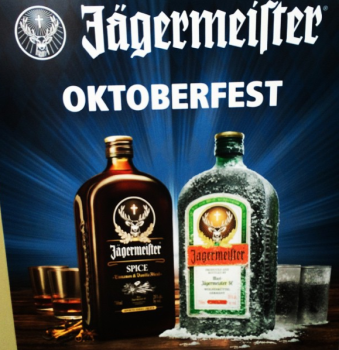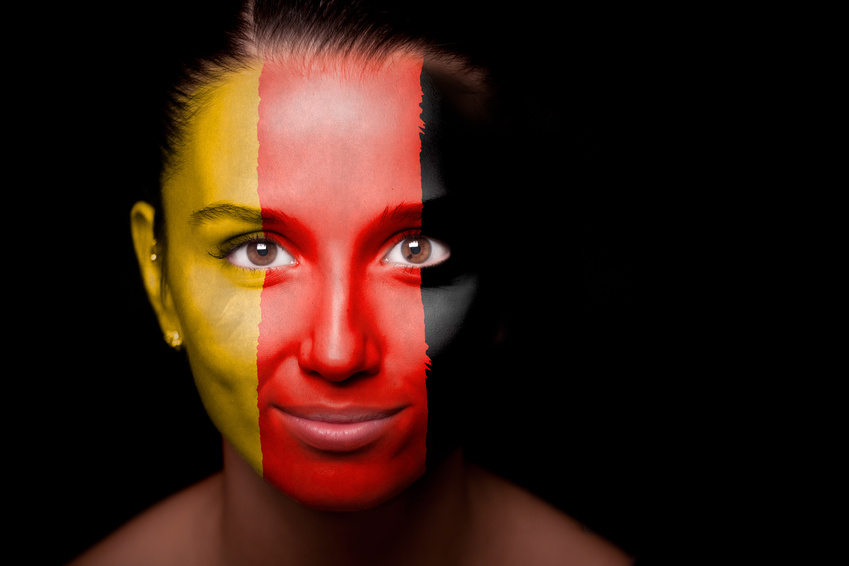
Forget about Oktoberfest in Munich. First, it’s too late to attend this year since Oktoberfest actually takes place in September. Second, waiting hours for a tent open is not compatible with the American spirit of “time is money.” That being said, there are many fun, inexpensive Oktoberfest celebrations in the States, thanks to the German heritage of the last century.
I moved to Germany in 1989 because I was in love with Christian, my once-in-a-lifetime “grand amour.” Christian was a good-looking almost-blond German with fantastic blue eyes and a pretty great butt. I left France to be with him and moved to Frankfurt, where I had a fantastic time and learned valuable German traditions like “Pommesbuden,” Bayreuth, and the Oktoberfest in Munich.
German for Beginners
Pommesbude is a small to-go shop that sells beer, hot sausages and French fries. You can recognize a Pommesbude by its strong smell of old grease and by the waiting line of town beggars. The German word for fries is “Pommes,” which is French for “apples”. Ergo, a Pommesbude is a place in Germany to get French fries.
Christian loved the local Pommesbude, where he used to go at least once a week with his best friends Jens and Andreas. Needless to say, he always came back in a funny mood and smelling terribly!
But Christian was also a music lover. His greatest music interest was Richard Wagner, a German composer who is best known for his operas. Wagner built his own opera house in Bayreuth, which is still dedicated to Wagner’s compositions only. It is incredibly hard to get tickets for this music festival. Christian tried every year, and he got lucky maybe every 5 years. When he invited me to join him for the Ring of the Nibelung, I said yes without knowing what to expect. On that day, I discovered I’m not really a Wagner fan.
Oktoberfest is Actually Held in September
After a Pommesbude in Hagen, Westphalia and Bayreuth, Bavaria, let’s go a littler further south. Talking about the Oktoberfest means I have to mention Munich. Munich is the capital of Bavaria and the third-biggest city in Germany. It is a lovely city in the South of Germany, where Bavarians speak the language with such a strong accent that they sound like foreigners—not only for me, but also for a lot of Germans.
Each year in September, Munich holds the largest beer festival in the world. Yes, despite what the name might suggest, the festival is in September and not in October. But why the funny name? Historically, the festival was held in October. However, the most obvious reason for the change to September is because of the weather. Because October can be pretty cool in Germany, since 1872 the Oktoberfest in Munich starts in mid-September and ends the first Sunday in October.
Oktoberfest Costumes Are Not for Everyone
When I was a child, I imagined that all Germans dressed in Lederhosen (German for short leather pants) and hats with chamois hair. But as I soon learned, this is not how Germans generally look. Lederhosen are a symbol of Bavaria. They are worn at the Oktoberfest or in beer gardens, and probably by older men in the Alps. Otherwise, they’re rarely seen elsewhere.
Nowadays, German men wear jeans, pants, and suits. No Lederhosen! I still remember pictures of Christian as a child with a Lederhose and suspenders. His white blond hair was easy recognizable in the black and white picture. So German—so cute!
The same applies to the Dirndl, which is the women’s costume for Oktoberfest. The Dirndl includes a traditional dress and apron and can be found in many different colors and patterns. Honestly, I love them! When my husband came back from Frankfurt last month, I enjoyed reading Bunte (a German gossip magazine with a lot of pictures and advertising), mostly for its pictures of German celebrities in Dirndl.
Oktoberfest in the United States
 This time last year, we spent several days on Cape Cod. While touring on the peninsula, I didn’t expect an Oktoberfest in Sandwich, MA—complete with a New England German band, a Bratwurst-eating contest, and a yodeling contest. The event was a full celebration of German food and beer. Nice!
This time last year, we spent several days on Cape Cod. While touring on the peninsula, I didn’t expect an Oktoberfest in Sandwich, MA—complete with a New England German band, a Bratwurst-eating contest, and a yodeling contest. The event was a full celebration of German food and beer. Nice!
The music was German, the food was German, and the crowd was old enough to almost feel German, since Germany has an older population and one of the lowest birth rates in Europe. According to the United Nations Population Estimate, the median age in Germany is 46.2 compared to 38 in the United States. In other words, people in Germany are older with fewer children.
Many communities in DC, Maryland, and Virginia hold Oktoberfest festivals as a reminder of the local German heritage of the last century. American Oktoberfest celebrations have less in common with the famous Munich festival. These American events generally involve less beer drinking and are more family focused in their sharing of German beer, food, music, and dancing.
Advanced German words for Oktoberfest Visitors
Apfelschorle: Apple juice mixed with sparkling water. Not only for designated drivers, but also the favorite soda mix of German children.
Bier: Beer. The most important word to know at Oktoberfest! For accurate pronunciation, try to imitate Germans from movies.
Brez’n: Pretzel, which is written “Brezel” in German. Brez’n is the short form of Bretzel. You will need some to balance your beer consumption.
Knödl: Dumplings. I prefer dumplings to Knödl and never understood how people can eat these. They are nothing like Asian dumplings but are made from bread or potatoes. Usually, these are eaten with a creamy sauce.
Prosit: Cheers.
Schunkeln: Swaying from left to right, but with your arms linked to your neighbors while listening to Bavarian folk music.
Wies’n: Bavarian for “Oktoberfest.”
Zicke, Zacke, Zicke, Zacke, Hoi, Hoi, Hoi! There is no translation for this phrase. Germans sing these words while Schunkeln and drinking.
Christian, Me, and Oktoberfest
I never went to Oktoberfest with Christian, maybe because we broke up a few years later. Honestly, Oktoberfest in Munich is not as romantic as it sounds. There are a lot of people, all of whom are drinking a considerable amount of beer. Oktoberfest celebrations in the United States are nicer, in my opinion —they’re not as loud or crowded. For my family and me, an American Oktoberfest is a nice place to go for a Schnitzel with Bratkartoffel (German fries), and a beer. In a small way, it reminds us of home – a feeling we share for Germany as well as France.





Great article!! Well written, capturing and touching on everything important in Germany: Bier, Pommes and “Gemuetlichkeit”! (being comfortable and having a great time with friends)
Every time I go back to Germany to visit friends and family, a stop at a Pommes Bude is scheduled, several glasses of German Bier are consumed and I get to enjoy German culture, mom’s food and genuine fun with friends for a couple of weeks.
Obviously there are differences between us celebrating “Oktoberfest” here in the US and abroad – while the German culture and heritage are instilled in so many of our fellow citizens and their families, we do everything different; why not partying too??
We don’t have less fun, it’s just different 😉 In most US states, you can find a place that comes close enough to the original overseas to enjoy an evening or two of fun and Gemuetlichkeit!
Prost!
Thank you Kris.